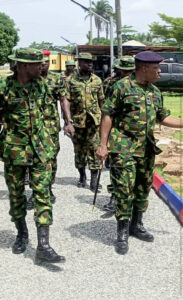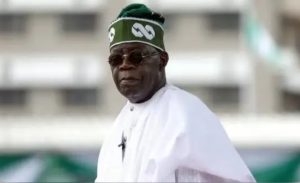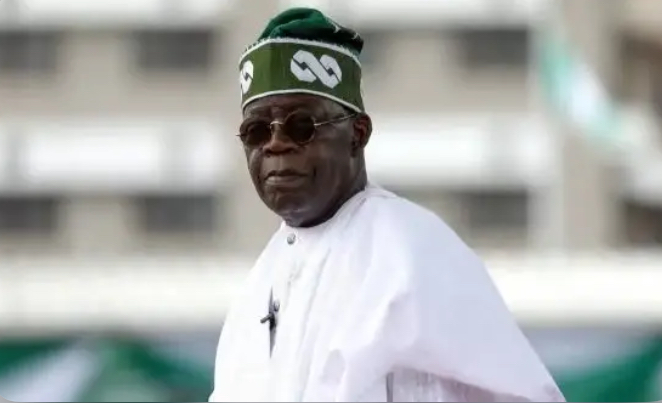Since taking office, President Bola Tinubu has made it clear that his top priority is reviving Nigeria’s economy, and this attitude is not without foundation. According to the National Bureau of Statistics, over 130 million Nigerians are living in poverty, double-digit inflation is still present, and unemployment is rising as businesses cut staff as a result of the elimination of fuel subsidies.

As a result, the president has taken important economic actions like eliminating the gasoline subsidy, bringing the exchange rate into line, pausing the implementation of new taxes, and forming a presidential committee on fiscal policy and tax changes.
Although these initiatives are admirable, it is crucial to shed greater light on the crucial problem of security since economic growth is meaningless if people are constantly experiencing violence and loss of life.
Tragically, since President Bola Tinubu took office, there have been an alarming number of murders and kidnappings in Nigeria. A total of 555 Nigerians were slain and 267 kidnapped between May 29 and July 3, according to a report by Global Rights titled “Mass Atrocities in Nigeria from 2019 to July 2023.” Attacks by bandits, Boko Haram rebels, gunmen, and other criminals are among these upsetting instances.

The north-central geopolitical zone, which has been devastated by banditry, has suffered the most, according to analysis of the report, with 312 fatalities reported in a period of 35 days. With 123 fatalities, the north-west comes in second, and there have also been substantial casualties in the south-east, north-east, south-south, and south-west regions. Notably, areas with a high banditry rate have seen a greater death toll, with a combined total of 435 deaths in the north-west and north-central.
The Function of Poverty and Power Conflicts

The fight for power and the pervasive poverty, according to Edosa Oviawe, program manager for Global Rights, are the main drivers of mass crimes in Nigeria. These two connected problems foster instability and violence, endangering the social cohesion and national economic development. It is imperative to give security measures that protect the lives and well-being of Nigerian residents first priority if one wants to address the core reasons.
Attack on the Farin Lamba hamlet in Vwang District in Jos South local government area of Plateau state was one alarming incident that took place during this time. An eight-month-old baby and seven other innocent people tragically perished as a result of gunmen shooting at innocent locals who were heading home after a day of activities. An earlier assault that resulted in fatalities and burning homes in the Sabon Gari hamlet of the Mangu local government district preceded this one.
The skirmishes in Plateau state are getting bloodier by the day as no fewer than eight persons, including an eight-month-old baby, were reportedly killed in Farin Lamba community of Vwang District of Jos South local government area (LGA) of the state.
While recognising the tragic results of continuous violence, President Tinubu offered his sorrow for the loss of innocent lives. He emphasized the value of compassion, the need for forgiveness, and the creation of tranquil and thriving communities.
It is clear that declarations and orders to security agencies alone are insufficient. Nigerians seek for concrete action that will let them live their daily lives without worrying about terrorism or violent crime.
It is essential that the newly appointed chief of the defence staff, Lieutenant General Chris Musa, puts the safety and well-being of Nigerians first given the urgency of the security issue. General Musa is well aware of his people’s suffering because he hails from Southern Kaduna, a region that has seen its share of upheaval. It is anticipated that he will move quickly to stop the widespread killings in the Kaduna, Benue, and Plateau axis, as a present to his people and a sign of his dedication to a secure future.
It is important to understand the symbiotic relationship between security and economic development, even though President Tinubu has rightfully focused emphasis on boosting the economy. Any economic gain is pointless without a secure environment. Before investing their money, investors—both domestic and foreign—look for security and stability. As a result, by placing a higher priority on security measures, the president can promote an environment that fosters investment, which will result in economic growth and job creation.

Additionally, increased security encourages farmers to work fearlessly, nurturing their grounds and raising agricultural output. In turn, this strengthens the agricultural industry, improves food security, and offers rural populations economic opportunity. Beyond economic benefits, increased security fosters social cohesion, trust, and a sense of national stability.
While President Tinubu has made a significant effort to revive Nigeria’s economy, it is critical to recognize the urgent requirement for stronger security measures. A serious threat to the nation’s development and social fabric is posed by the current security crisis, which is characterized by an increase in deaths and kidnappings. The lives and wellbeing of Nigerian citizens must be protected immediately because poverty and power struggles exacerbate this problem.
There is now a chance to solve the security issues that particular regions, including Kaduna, Benue, and Plateau, are currently experiencing thanks to the recent appointment of Lieutenant General Chris Musa as the chief of defense staff. It is hoped that under his guidance, there will be a notable decline in violence, benefiting his neighborhood and promoting a more secure and affluent Nigeria.
President Tinubu should invest in comprehensive security measures and give them top priority because of the indissoluble relationship between security and economic success. By doing this, he will foster an atmosphere that draws investors, supports farmers, and improves the state of the entire country. Nigeria can go along the path of peace, stability, and sustainable economic progress in this way.
President Tinubu should invest in comprehensive security measures and give them top priority because of the indissoluble relationship between security and economic success. By doing this, he will foster an atmosphere that draws investors, supports farmers, and improves the state of the entire country. Nigeria can proceed in this manner toward achieving peace, stability, and long-term economic progress.




Leave a reply